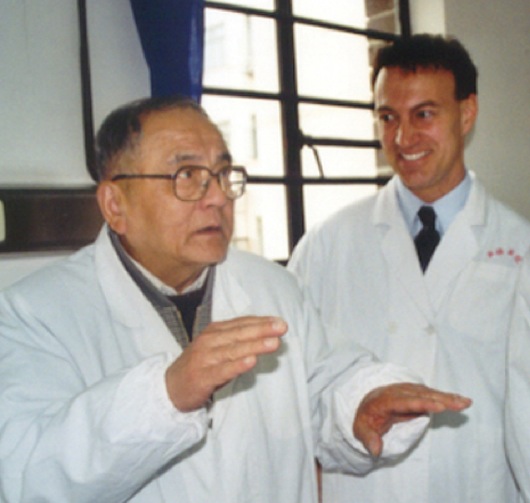From our youth we are each raised to value freedom. We sing about it in patriotic songs, practice it in elections of all scales, defend it in the courts, even send soldiers to remote corners of the planet to somehow secure freedom’s future. But what is the true essence of this intangible virtue? We usually think of freedom as the independence to say whatever we desire, travel wherever we choose, and believe anything we want. By this definition, America is clearly one of the most “free” nations on Earth. It’s almost impossible, however, to appreciate these liberties until one experiences life in a more restrictive environment.
In 1982 I graduated from medical school and moved to Shanghai to work at the Charity Hospital – then known as Third People’s Hospital. While fascinated with other cultures and languages, I was also keenly aware that I was living among people who did not enjoy the personal freedoms I’d experienced back home. Political speech was restricted, travel required prior authorization, and morality as instructed was strictly Marxist. Were the Chinese of that era worse off because they did not enjoy American-style freedoms? Are people today living in North Korea, Iran, or Yemen disadvantaged for want of these privileges? Closer to home, are citizens of the United States truly better off by because we have a Bill of Rights?
One could convincingly argue that greater individual freedom tends to usher in the advantages of economic prosperity, scientific progress, and artistic expansion. With these also come increases in personal longevity, literacy, leisure, and self-actualization. But other dimensions to freedom also exist – dimensions that are rarely discussed in the political arena. One dimension holding special interest to me is the freedom of self-determination; or rather, the liberty to choose what we’ll do with our freedom.
Self-determination can be a power for incredible good. The Wright Brothers, who first flew on December 17, 1903, were completely absorbed with perfecting their machine – and the entire world has benefited. But self-determination – selfishness in this case – also carries the potential to corrupt a man or woman, producing the likes of Stalin and Enron. Too often, people the world over use “freedom” simply as an excuse for feeding their own self centeredness. I am convinced that for people to be truly free, they must also become liberated from this destructive power.
Liberation from selfishness requires a conversion of the heart – a transformation that no political system can possibly produce. In my first published book, Shanghai Doctor, I describe the lives of two men whom I knew in China. Wo Wei was an official whose life was consumed with trying to motivate people toward self-sacrifice through a nation-wide program of political education. Predictably, he was disappointed over the results. Meanwhile his new found friend, Li Ming, was day after day going about committing random acts of kindness to surprised hospital patients, washing their clothes, feeding those who were unable, reading to the children – and all with an attitude of joy.
One afternoon, I asked Li Ming about his motivation. The man reached into a empty rice sack and pulled out a small black book. He flipped the pages, and finding a place began to read: “Rejoice in the Lord always. I will say it again: Rejoice! Let your gentleness be evident to all. The Lord is near. Do not be anxious about anything, but in everything, by prayer and petition, with thanksgiving, present your requests to God. And the peace of God, which transcends all understanding, will guard your hearts and your minds in Christ Jesus.’’
Li Ming closed the book and looked up at me. “This is the secret of my life. I follow Jesus Christ. He has transformed me on the inside. He has given me true freedom – freedom from focusing on myself, and freedom to genuinely love others. I have love to give because I know the Greater Love – the love Jesus has for me!”
Self-absorption is a terrible form of bondage. It confines the individual to a lifestyle of pettiness and isolation, as vividly described in the Simon & Garkunkel song I Am A Rock. Sadly, the option to focus on oneself – while guaranteed by a constitution – is both epidemic and deadly. Medical research clearly documents the risks of ill health among the millions who live in social seclusion. But breaking from this bondage requires more than simply a decision to “get out more” or to “get connected.” Rather, it also includes a decision to seek out the God who Himself desires a relationship with each of us. As Li Ming observed, both enduring joy and the energy to engage other people result when we acknowledge that the Lord is near. Only by trusting in this conviction can we become truly free.

